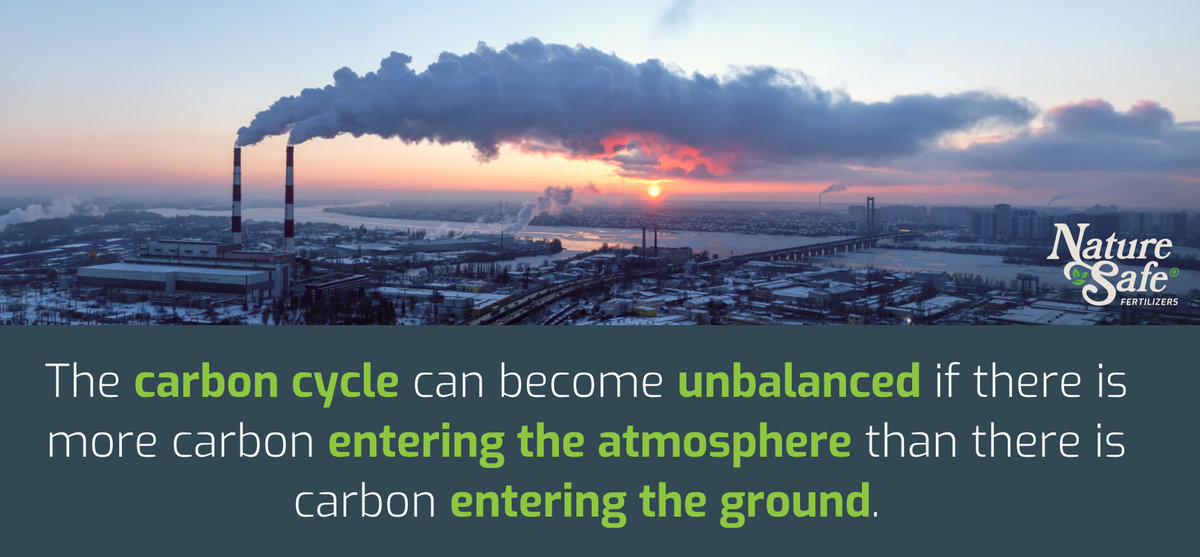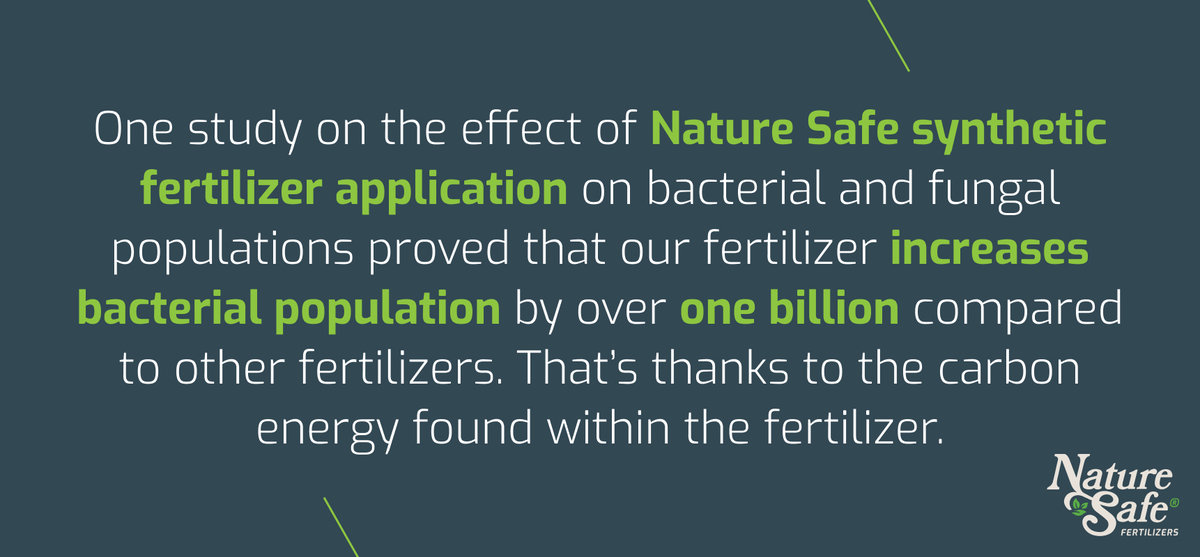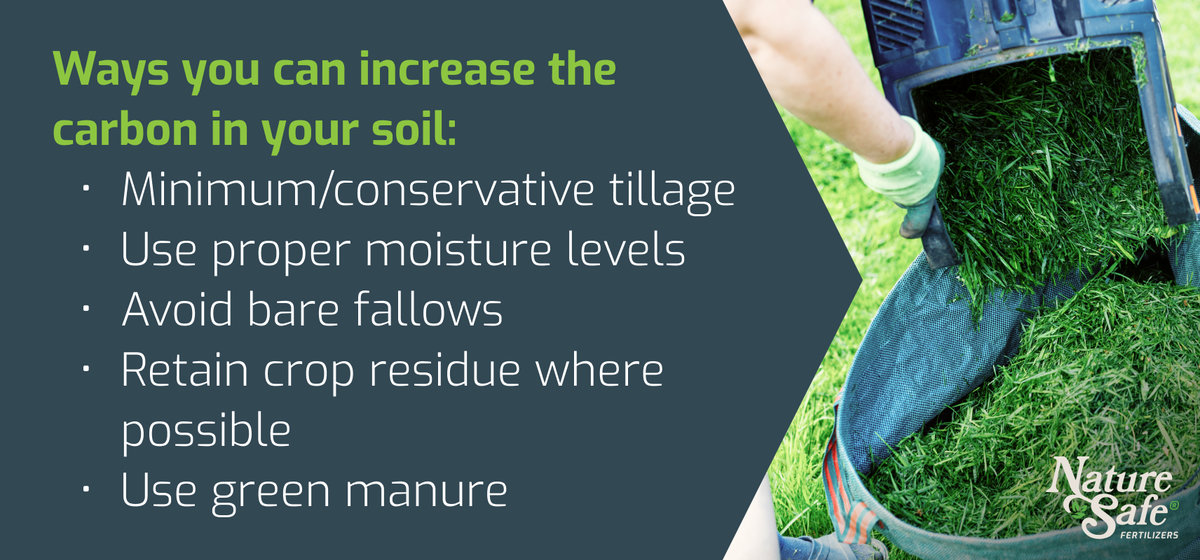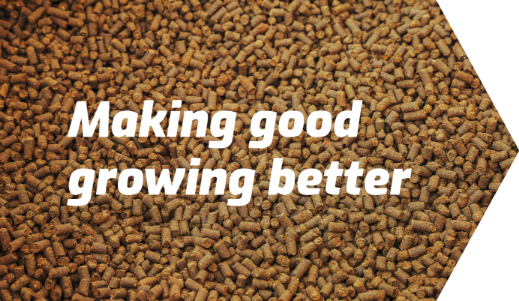
Carbon in Soil: Why is It Important?
- Posted: Dec 13, 2023
- Author: Nature Safe Fertilizers
- Environment
A lot goes into growing good food. Land, equipment, workers, licensing, capital, seed, and our favorite, fertilizer. Each of these pieces is important for farmers, and each piece needs to be handled correctly or else things might not work out.
One facet of farming that can go unnoticed is carbon sequestration. Carbon is an important building block of every living organism. For growers, it helps soil be productive and healthy.
For growers, carbon is important for creating healthy and productive soil. Carbon-rich soil increases plant yield, water storage, protection against fluctuating Ph and erosion. As an added bonus, the earth benefits from carbon-rich soil because it removes it from the atmosphere. Learn how you can benefit the planet, and your crops with Nature Safe.
Carbon - The Building Block of Life
Carbon is used as the building block of all living organisms. This includes humans, animals, plants, and even soil. It’s the “essence of life” and It’s used by plants to build leaves and stems, and it’s found in every living organism.
Within the world of sustainability, carbon is a household term, and it’s most associated with carbon footprints, or, how many carbon compounds are being produced by a single entity. However, there is much more to carbon than meets the eye.
The Carbon Cycle
Carbon chains contain energy, and that energy is not discarded after use. Instead, it’s reused in what is called the carbon cycle. This cycle is similar to the water cycle and explains how carbon travels.
Carbon atoms travel from the atmosphere into organisms, into the earth, and then back into the atmosphere repeatedly. It’s a complex cycle that includes multiple ways for carbon to travel to and from the atmosphere. Here are some of the ways carbon can enter the atmosphere:
- Animal Respiration
- Plant respiration
- Decomposition
- Tilling Soil
- Human Emissions
The carbon cycle can become unbalanced if there is more carbon entering the atmosphere than there is carbon entering the ground. The natural way carbon enters the ground is through decaying plants, animals, and other natural processes.

Why Carbon Content in Soil is Important for Growers
There are multiple benefits to having more carbon in the soil. Soil organic carbon is an indicator of soil quality, but what does it benefit and why should growers care?
Benefits The Planet
Anything that stores more carbon than it releases is called a carbon sink. Carbon sinks help offset imbalances within the carbon cycle by storing a lot of carbon instead of releasing it. This slows down global warming by decreasing the amount of greenhouse gasses in the atmosphere.
Transforming your soil into a carbon sink is called carbon sequestration, and it’s a great way for growers to help the environment and improve their soil’s health. Soil can be a great carbon sink. Not only is soil good at storing carbon but that stored carbon is great for plant production.
Benefits Your Plants
Throughout soil, there are tiny microorganisms that work to break down crop residue, cycle nutrients, and stimulate plant growth. Carbon-rich soil creates productive microorganisms and creates healthier and more productive growth.
Carbon-rich soil can also increase:
It can also protect your soil from:
One study on the effect of Nature Safe synthetic fertilizer application on bacterial and fungal populations proved that our fertilizer increases bacterial population by over one billion compared to other fertilizers. That’s thanks to the carbon energy found within the fertilizer.
A lot of good can come from carbon-rich soil, but how do you manage your soil’s carbon? And how do you keep it in your soil?

Managing Your Soil’s Carbon
Improper agricultural practices can off-balance the carbon cycle and put carbon into the atmosphere at a quicker rate than absorbing it. Overfarming is easy, but you can take the proper steps to ensure you’re getting the most out of your soil.
Carbon sequestration in farming will benefit your crops. Here are some ways you can begin soil carbon sequestration that will benefit your land and your crops.
Measure Your Soil’s Nutrients and Structure
To manage your soil’s carbon levels, you need to understand the current health of your soil. To get the best results, you’ll have to send your soil to a lab to get tested. These soil tests will show you the nutrients currently available in your soil as well as other important values that make up your soil's health.
However, there are some tests you can do in the field to track:
- Water infiltration rate
- Soil structure
- And other visual-related things
Soil tests will tell you a lot about your soil’s health. Laboratory soil samples should be conducted every 3-5 years to make sure things are going in the direction you want them to go.
Measures to Decrease Carbon Loss
Keeping carbon in your soil will increase soil production, but that may be easier said than done. Some practices help add carbon while others keep it in. Here are some of the ways you can increase the carbon in your soil to create healthy, carbon-rich soil:
- Minimum/conservative tillage: High tillage will lose carbon and nutrients through soil cultivation and erosion.
- Use proper moisture level: Soil that’s too moist will smear, and soil that’s too dry will pulverize. Make sure you’re using proper moisture levels.
- Avoid bare fallows: When land is left bare, it loses the rich microbial activity. Instead of bare fallows, use cover crops to maintain your nutrition-rich soil.
- Retain crop residue where possible: You can use crop residue to maintain soil health by giving the microorganisms energy to use.
- Use green manure: This repurposes the nutrients found in cover crops.
Some of these practices are common and you may already use them. Implementing these farm practices will increase your soil’s organic matter as well as help sequester carbon.

Healthy Soil, Healthy Planet
Soil is like an engine. Healthy soil will absorb more carbon and carbon-rich soil is healthy. Once you get the engines going, your soil's natural resources will create a healthier place for plants to grow.
Investing in quality organic fertilizer will make good growing better.
Contact Nature Safe
Nature Safe produces organic fertilizers made out of rendered ingredients making them the perfect fertilizer for farmers with a sustainable mindset. Our 8-5-5 fertilizer is designed to stimulate all soil life, including carbon.
If you want to start making your good growing better, contact us to find a distributor near you.
